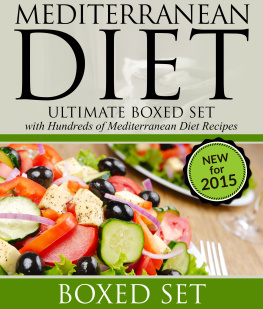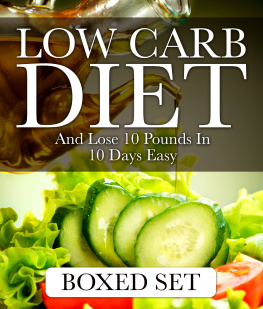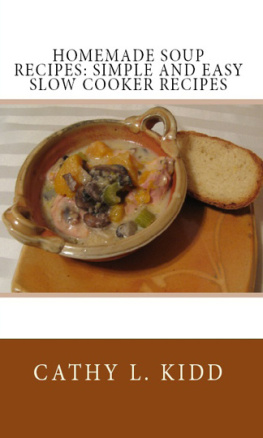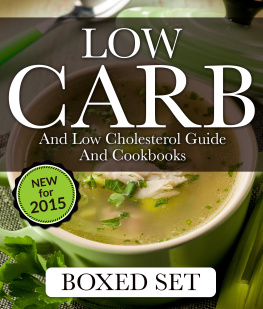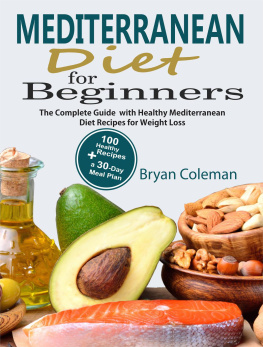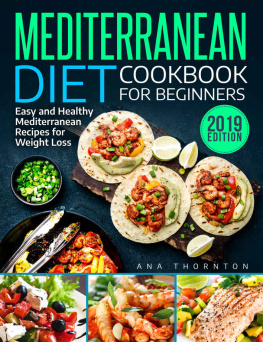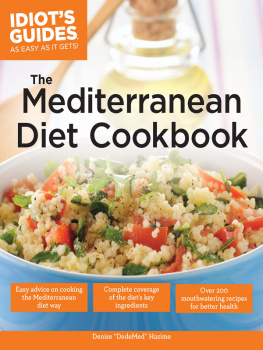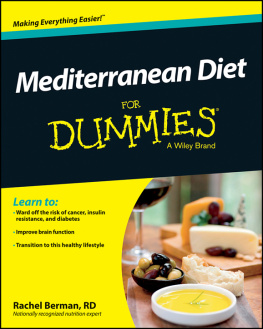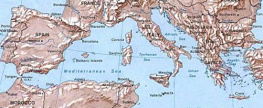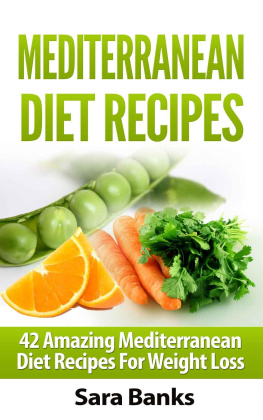Speedy Publishing - Mediterranean Diet: 3 In 1 Box Set
Here you can read online Speedy Publishing - Mediterranean Diet: 3 In 1 Box Set full text of the book (entire story) in english for free. Download pdf and epub, get meaning, cover and reviews about this ebook. year: 2019, publisher: Speedy Publishing LLC, genre: Home and family. Description of the work, (preface) as well as reviews are available. Best literature library LitArk.com created for fans of good reading and offers a wide selection of genres:
Romance novel
Science fiction
Adventure
Detective
Science
History
Home and family
Prose
Art
Politics
Computer
Non-fiction
Religion
Business
Children
Humor
Choose a favorite category and find really read worthwhile books. Enjoy immersion in the world of imagination, feel the emotions of the characters or learn something new for yourself, make an fascinating discovery.
- Book:Mediterranean Diet: 3 In 1 Box Set
- Author:
- Publisher:Speedy Publishing LLC
- Genre:
- Year:2019
- Rating:3 / 5
- Favourites:Add to favourites
- Your mark:
- 60
- 1
- 2
- 3
- 4
- 5
Mediterranean Diet: 3 In 1 Box Set: summary, description and annotation
We offer to read an annotation, description, summary or preface (depends on what the author of the book "Mediterranean Diet: 3 In 1 Box Set" wrote himself). If you haven't found the necessary information about the book — write in the comments, we will try to find it.
Mediterranean Diet: 3 In 1 Box Set — read online for free the complete book (whole text) full work
Below is the text of the book, divided by pages. System saving the place of the last page read, allows you to conveniently read the book "Mediterranean Diet: 3 In 1 Box Set" online for free, without having to search again every time where you left off. Put a bookmark, and you can go to the page where you finished reading at any time.
Font size:
Interval:
Bookmark:

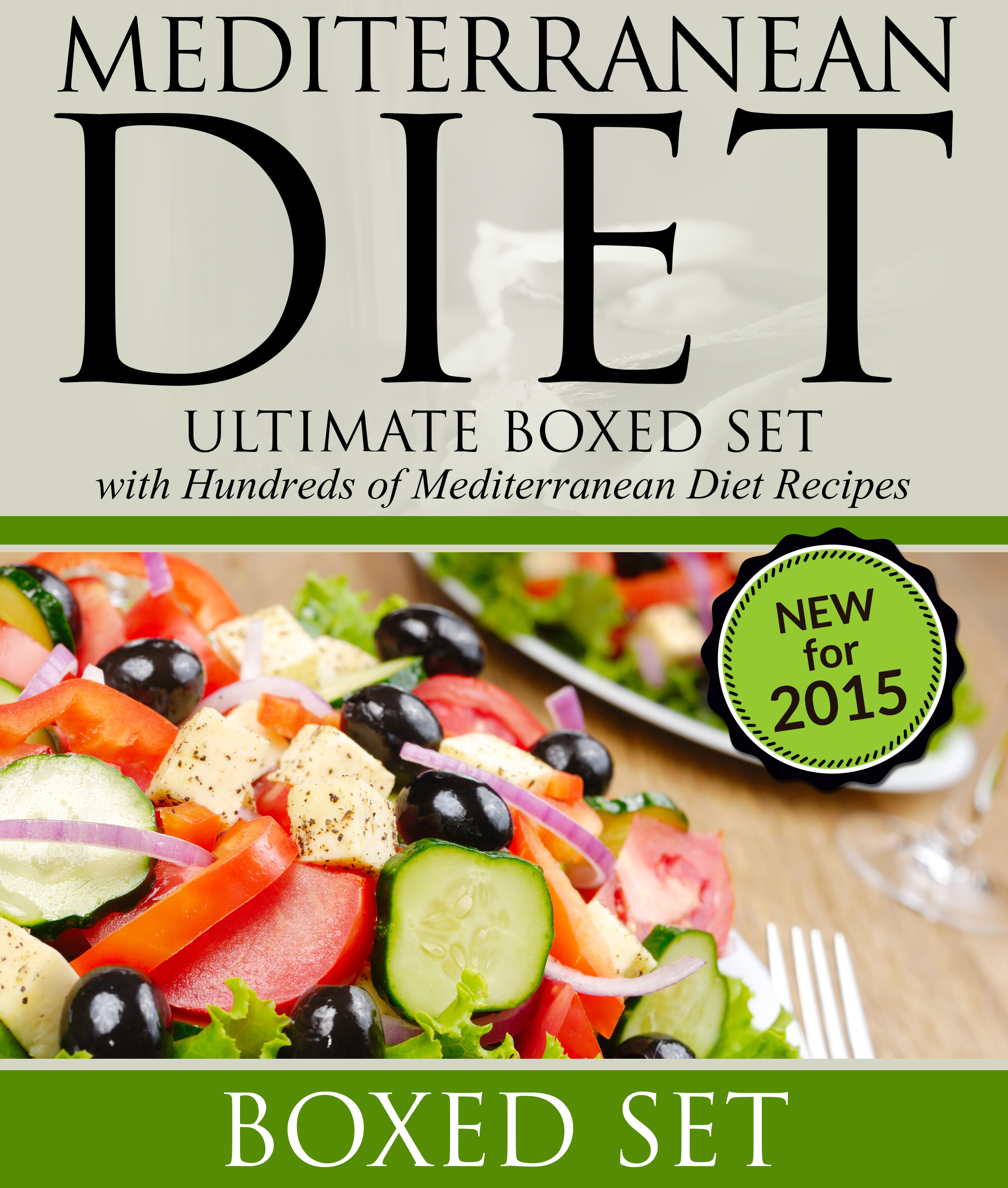
Table of Contents
Mediterranean Diet [Second Edition]
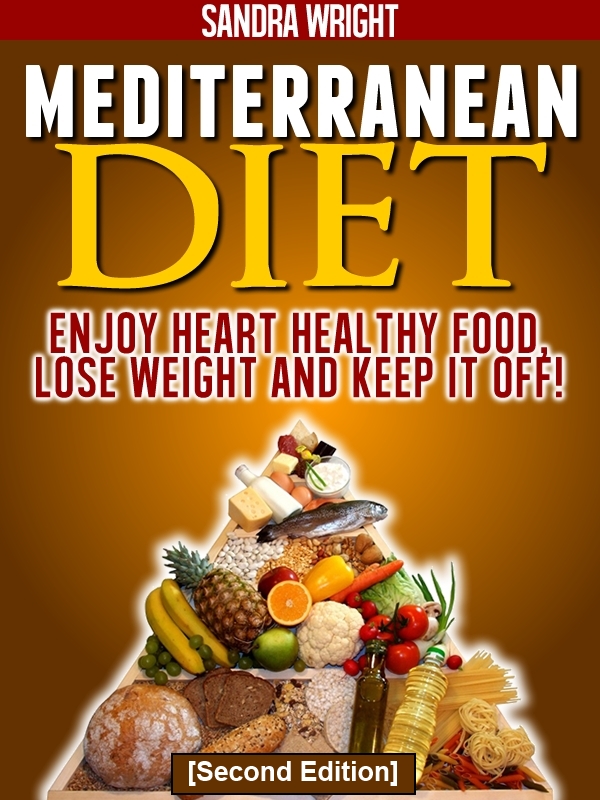
Mediterranean Diet [Second Edition]
Enjoy Heart Healthy Food, Lose Weight and Keep it Off!
Sandra Wright
Copyright 2013 Sandra Wright
All rights reserved.
Mediterranean Diet
Every solid weight loss plan requires increased attention on the foods you eat. But the contents of your diet, however healthy, cannot provide wellness if one fails to remember to structure their lifestyle accordingly. If you want to lose weight, finding solid information is the key to this step. That information can help you achieve the best mindset to reach your goals.
If the extremes of modern day fringe diets impose too great a demand upon your palate, it may perhaps be beneficial to look backwards in time for more natural and traditional diet based health solutions.
Whether your objective is to lose weight or eliminate a chronic health condition, more and more people nowadays are turning to the Mediterranean diet as a means to improve their overall wellness. Providing a delectable variety of proteins, vegetables, and favorite recipes dating back thousands of years, a Mediterranean diet is one, which can enable you a healthier lifestyle while still providing delicious meals.
It doesnt just taste delicious; its good for you too. The Mediterranean diet first came to the attention of the west in the mid 20th century when studies showed that people living in Southern Europe, where most recipes share much in common, not only had much longer life expectancy, but were comparatively free of chronic conditions such as heart attacks and hypertension compared to their northern neighbors.
It was perhaps a bit over-hyped a few decades ago when it was hailed, due to some misinterpreted facts in early studies, as a veritable fountain of longevity based on dietary factors alone. For example, at the time of the initial studies, the majority of Southern Europeans were still engaged in agricultural labor, and with private car ownership as well as public transport (in most areas) hard to come by, the people walked pretty much everywhere they went. Additionally, they didn't take notice of the more favorable work-life balance common in Mediterranean cultures, the early studies failed to report that an active lifestyle was part of the answer to why Southern Europeans lived longer, healthier lives. Despite this, its a truism that no diet, however salubrious, is going to be of much benefit without an active lifestyle.
Before becoming the global sensation that it is today, the foodstuffs comprising the Mediterranean diet were based more on easy availability than on any profound ancient wisdom known by the region's early inhabitants, although human intervention played a significant role in which crops became dominant.
Unlike less favorable climates, with short growing seasons and a need for food that would last the long winters, both the choice and quantity of foodstuff in the Mediterranean was vastly greater than that found in less naturally blessed environments. Whereas the common people of the north subsisted mostly on bread, preserved meats, and a little cheese, inhabitants of the Mediterranean, with far more choices, naturally made a habit of eating a rich variety of foods.
As befits its namesake sea, the Mediterranean diet is very rich in seafood. The snaking coast lines and many islands meant that nearly all Southern Europeans had access to fresh fish, clams, mussels and calamari on a regular basis while most northerners only experience with seafood came in the form of salted cod from the distant Atlantic that had been marinating over a mules back for 6 weeks in the summertime on its way inland. So can it really be surprising that most Germans grew to prefer sausage?
Long growing seasons meant that there was always some freshly harvested produce in the local markets, so the inhabitants rarely had to resort to rat-infested stocks of grain like their climatologically challenged neighbors during sub-arctic winters.
History and trade had a hand in it too. Long before Roman times, the Mediterranean was a highway for the various peoples along its rim. Olives, Citrus fruits, grapes, as well as chickpeas and other legumes that comprise the heart of the Mediterranean diet were distributed via these early trade networks, and then mass-produced in industrial fashion on the vast Roman villas that dotted the body of water they, not unjustifiably, called Mare Nostrum, or Our Sea.
Cash crops like Grapes, wool, and flaxseed were primarily exported, while cheap and easy to grow grains and vegetables were made available as the food supply of the armies of agricultural laborers and slaves upon whom the system rested. Obviously, it was in the Roman's interest for this vast labor force to be as well (yet cheaply) fed as possible. The 1000-year period of political and economic union forged by the Roman Empire did much to ensure that most ingredients composing the Mediterranean diet of today were eaten across the whole region thousands of years ago.
The typical Mediterranean diet is made up of over 30% fats. However, the saturated fat from red meat and heavy animal fats that lead to clogged arteries makes up only 8% of the total, due in large part to the relatively rare consumption of red meat and preference towards olive oil as a heating agent. Once again, geography plays a role. With most of the farmland along the Mediterranean crowded into fertile valley nestled between mountains or deserts, livestock was mostly used for dairy purposes. Indeed, before Southern European diets were influenced by modern habits, lamb was just about the only red meat consumed, and even then only sparingly, as wool was the main source of clothing.
This diet is not typical of all Mediterranean cuisine. In Northern Italy, for example, lard and butter are the usual heating agents for in cooking, and olive oil is used only for dressing salads and vegetables. In North Africa wine is religiously avoided by most of the locals.
Even though the diets of Southern Europeans themselves are steadily broadening, the health benefits of limiting your meals ingredients to those traditionally found along the Med will provide long term benefits and provide a richness of flavor rarely found in the fad diets promoted by one weight loss guru or the next.
Key Ingredients and Recipes
As computer programmers like to say about code, Garbage in, Garbage out, the same goes for the ingredients we put into our meals. The first step in using the Mediterranean diet to increase your health is to first learn of what its composed of, and then using those ingredients in your daily meals.
Fruits and Vegetables
The Mediterranean region has volcanic soils and a 12-month growing season, so it is not surprising that the people of that area, on average, consume nine portions of fruits and vegetables every day. Mediterranean residents generally purchase their produce from farmers markets and produce stands. They also enjoy it when its most flavorful by consuming in season produce.
Vegetables provide the most antioxidants needed for health and longevity when they are heated and processed only minimally. Even more important, the variety of vegetables and fruits commonly consumed gives people who have trouble sticking to diets a higher chance of success due to the greater choices available.
Font size:
Interval:
Bookmark:
Similar books «Mediterranean Diet: 3 In 1 Box Set»
Look at similar books to Mediterranean Diet: 3 In 1 Box Set. We have selected literature similar in name and meaning in the hope of providing readers with more options to find new, interesting, not yet read works.
Discussion, reviews of the book Mediterranean Diet: 3 In 1 Box Set and just readers' own opinions. Leave your comments, write what you think about the work, its meaning or the main characters. Specify what exactly you liked and what you didn't like, and why you think so.

